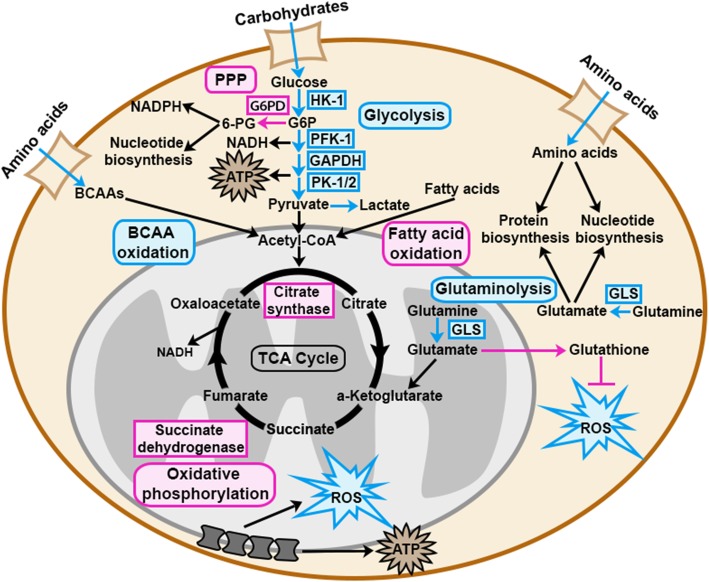Fig. 2.
Sex differences in metabolic pathways may contribute to sex differences in cancer development, progression, and treatment response. During development and throughout adulthood, males and females utilize nutrients differently. Males favor carbohydrate and amino acid metabolism, while females favor fatty acid metabolism. Furthermore, female mitochondria produce less ROS despite their higher mitochondrial activity. These fundamental sex differences in nutrient utilization and mitochondrial activity may contribute to sex differences in metabolic reprogramming in cancer cells, which is important during cancer development, cancer progression, and response to anti-cancer treatment. This schematic focuses on metabolic pathways that are known to be sexually dimorphic and important in cancer. Metabolic pathways, metabolites, and metabolic enzymes shown in blue or pink are known to be higher in males or females respectively

